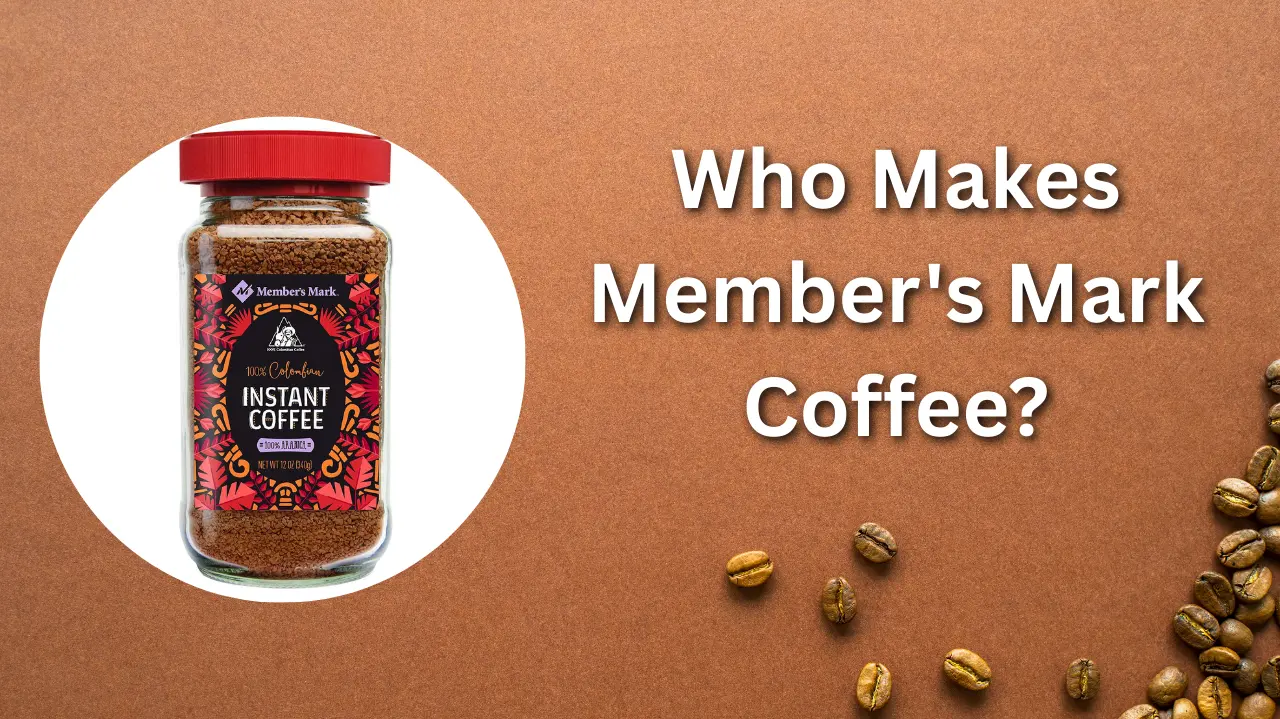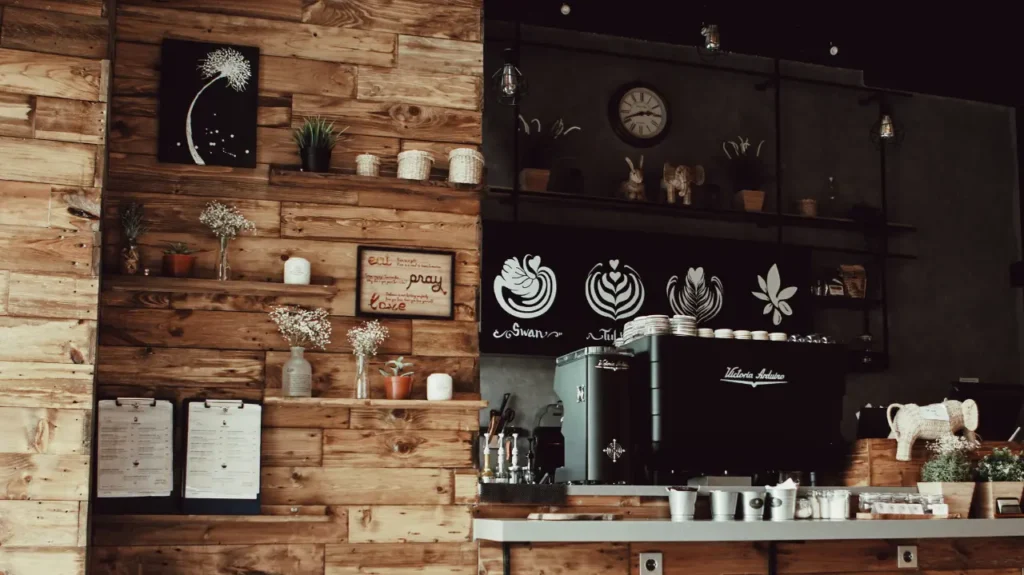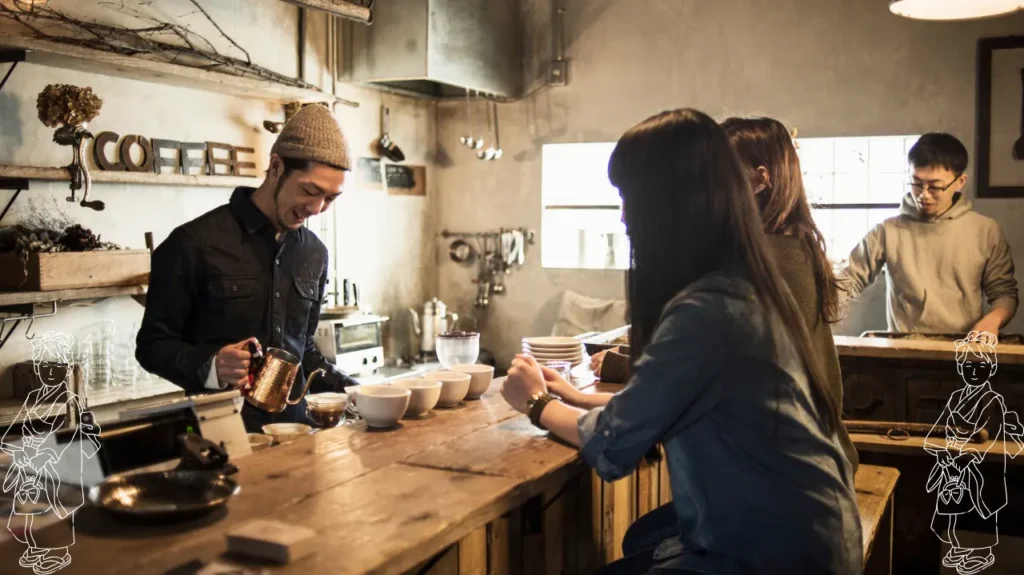You take that first sip of coffee every morning, trusting it to kick off your day. But have you ever wondered who makes Member’s Mark coffee, the familiar blend in your Sam’s Club bag?
Member’s Mark coffee has become a pantry staple for millions, praised for its quality and wallet-friendly price.
But the real story? It’s steeped in tradition, ethics, and a Brazilian coffee dynasty.
Let’s uncover the secret behind your morning cup. While Sam’s Club keeps its suppliers quiet, industry clues point to Cafe Bom Dia, a family-run coffee titan from Brazil.
For over 100 years, they’ve roasted beans for global brands, blending heritage with sustainable practices. This isn’t just coffee; it’s a legacy poured into every bag.
We’ll explore how Cafe Bom Dia’s beans travel from rainforest farms to your kitchen, why Sam’s Club trusts them, and what makes Member’s Mark a standout.
Who Makes Member’s Mark Coffee?
When you sip Member’s Mark coffee, you taste the work of Cafe Bom Dia, a fourth-generation Brazilian coffee dynasty.
This isn’t some faceless corporation. It’s the Marques de Paiva family, hands deep in coffee soil since the early 1900s. Their secret?
A sprawling network of over 4,800 farmers stretching from Brazil’s sun-drenched fields to Ethiopia’s misty highlands. Every bean tells a story of soil, sweat, and strict quality checks.
But here’s what truly sets them apart: sustainability isn’t optional.
Nearly 80% of their beans Roast are roasted in Minas Gerais, Brazil’s coffee heartland, inside a CarbonNeutral facility, a rarity in the industry.
Think solar power, zero waste, and emissions balanced like a perfectly brewed espresso. They don’t stop there.
Facilities in Colombia and Seattle follow the same playbook, ensuring your cup meets Rainforest Alliance, Fair Trade, and Organic standards. No shortcuts. No greenwashing.
Why does Sam’s Club trust them? Rewind to 2008. That’s when Sam’s Club shook up the market, launching one of the first nationwide Fair Trade private-label coffees, and Cafe Bom Dia was the backbone.
Coffee & Conservation and Marketing Scoop reports confirm their role: they supplied the beans, TransFair USA certified the ethics, and Member’s Mark became a hit.
Rumors swirled about other suppliers, like Westrock, but digging deeper reveals no direct ties. The receipts? All point back to Brazil.
This partnership thrives because values align. Sam’s Club wants quality at scale. Cafe Bom Dia delivers without letting farmers foot the bill.
Every bag you buy helps fund fair wages, eco-friendly farming, and a future where coffee doesn’t cost the planet. That’s not just good business. It’s coffee done right.
A Closer Look at Cafe Bom Dia’s History and Practices
Let’s step into the world of Cafe Bom Dia, a name that translates to “Good Morning Coffee” but has been waking up Brazil’s coffee scene for over 100 years.
This isn’t just a business the Marques de Paiva family has run since the 1900s. It’s a lineage.
Four generations have poured their lives into coffee, from nurturing seedlings in Minas Gerais’ red soil to perfecting roasts that land in your Sam’s Club bag.
Think of them as coffee’s answer to a multigenerational winery, but instead of grapes, they’re masters of the bean.
Farming
Brazil’s coffee history is legendary, but Cafe Bom Dia writes its chapter. They own Rainforest Alliance-certified family farms, but their reach stretches further.
Imagine a web of 4,800+ farmers across Brazil, Colombia, Ethiopia, and even Sumatra. Each partner must meet strict standards: no child labor, fair wages, and eco-friendly practices.
This means stability for small farmers like Rafael de Paiva (who have no relation to the founding family).
His fair-trade premium jumped earnings by 20%, funding his community’s schools and clean water projects.
But here’s the twist: sustainability isn’t just about rules. It’s survival. In Brazil’s Mata Atlantic Forest, a biodiversity hotspot where Cafe Bom Dia sources beans, only 7.3% of the original forest remains.
Critics once questioned how coffee farming here could align with eco-ethics.
The answer? Certifications like Rainforest Alliance ensure farms mimic natural ecosystems, protecting endangered species while growing beans. It’s coffee that doesn’t cost the earth, literally.
The Roast Revolution
Head to Minas Gerais, Brazil’s coffee heartland, and you’ll find Cafe Bom Dia’s crown jewel: a Carbon-neutral roastery.
Solar panels hum, emissions are offset, and every bean is tracked from farm to foil bag. This isn’t just eco-theater.
The facility cuts waste by recycling coffee husks into fertilizer and using water-efficient tech. Even their partner roasteries in Colombia and Seattle follow the same playbook: consistency with a conscience.
Fair Trade, Real Impact
In 2008, Sam’s Club bet big on Cafe Bom Dia. Why? Because they cracked a code: mass production without moral shortcuts.
When Sam’s launched its Fair Trade Member’s Mark line, Cafe Bom Dia became the engine. They bypassed intermediaries, buying directly from cooperatives.
Farmers earned $1.29 per pound, above market rates, while Sam’s kept prices low. That extra cash meant school fees, healthcare, and crop upgrades for growers.
For you? A $6.88 can of coffee that supports a system where everyone wins.
Beyond the Bean
The Marques de Paiva family doesn’t stop at certifications. They’re coffee futurists. While Brazil’s vast farms rely on mechanical harvesters (giant tunnel-like machines that strip cherries efficiently), Cafe Bom Dia balances scale with sensitivity.
In Minas Gerais’ rolling hills, they blend tech with tradition, using vibrating “hand harvesters” on steeper terrain to protect both trees and jobs. It’s a dance between progress and preservation.
The Partnership with Sam’s Club
Let’s rewind to 2008. Pricey, ethical brands dominated the coffee aisle, and store labels were stuck in the cheap, bitter past.
Then Sam’s Club dropped a bombshell: Member’s Mark Premium Ground Coffee, one of the first nationally available Fair Trade private-label blends.
The secret weapon? Cafe Bom Dia.
This wasn’t just a handshake deal. It was a gamble. Sam’s Club needed mountains of beans, ethically sourced, budget-friendly, and good.
Cafe Bom Dia delivered. How? By cutting out intermediaries and buying directly from farmer co-ops. Think of it as farm-to-warehouse, with every step stamped Fair Trade.
For Sam’s Club members, it is $8.99 a bag, rivaling Starbucks at half the price. For farmers like Maria in Colombia?
A guaranteed $1.40 per pound, enough to send her kids to school and replant aging coffee trees.
But quality wasn’t negotiable. Cafe Bom Dia’s roasters worked overtime crafting blends tailored to Sam’s Club shoppers.
The Classic Roast? A crowd-pleasing medium blend with chocolatey depth.
The Donut Shop Pods? Engineered to mimic that corner-café vibe. One industry insider told Marketing Scoop: “Member’s Mark is the rare brand that nails ethics and flavor without the markup.”
The numbers don’t lie. By 2015, Member’s Mark had become a top-three coffee brand in U.S. club stores, stealing shelf space from giants like Folgers.
Single-serve pods exploded next, catering to busy households hooked on Keurigs. But here’s the kicker: prices stayed stubbornly low.
A 48-ounce tin still costs less than $15 today, roughly 31 cents per cup.
Critics wondered: How can something this cheap not cut corners? The answer lies in scale. Cafe Bom Dia’s vast network of 4,800+ farms across five countries lets them buy in bulk, slashing costs.
Meanwhile, Sam’s Club’s no-frills model (think: warehouse-sized bags, minimal marketing) passes savings to shoppers.
But the real win? Farmers thrive, and forests survive. Cafe Bom Dia-funded cooperatives in Costa Rica planted 12,000 shade trees in 2022 alone, reviving bird habitats.
In Ethiopia, Fair Trade Premises built a health clinic serving three villages. This partnership proves ethics and profits aren’t enemies; they’re allies.
Today, every Member’s Mark bag whispers a promise: Great coffee shouldn’t cost the earth.
Member’s Mark Coffee Varieties
Let’s talk about choice. Member’s Mark doesn’t just sell coffee; it crafts experiences. From sunrise brews to midnight decafs, their lineup dances between bold, smooth, and everything.
Here’s the lowdown on what’s brewing in those iconic red bags and pods.
| Variety | Description | Format | Key Features |
| Classic Roast Ground | 100% Colombian Arabica, hand-picked for a velvety finish with gentle acidity. | Ground | Low-acidity, balanced for drip machines |
| Premium Ground | Rich, chocolatey depth backed by Fair Trade ethics. Notes of toasted nuts. | Ground | Rainforest Alliance certified, eco-conscious |
| Donut Shop Pods | Medium roast mimicking your corner café’s vibe, hint of caramel, zero pretension. | Single-serve pods | Keurig-compatible, 100-ct value pack |
| Decaf Colombian Pods | All the smoothness of Colombian beans, minus the buzz. Perfect for late nights. | Single-serve pods | Swiss Water Process decaf, low acidity |
| House Blend Ground | Caramel whispers meet a spicy kick. Your daily driver for French press or pour-over. | Ground | Versatile, crowd-pleasing |
| Decaf Medium Roast | Caffeine-free without the flatness. Think toasted marshmallow meets dark cocoa. | Ground | Evening-friendly, no bitterness |
| Whole Bean Coffee | Light, medium, or dark, grind fresh for espresso, cold brew, or your morning ritual. | Whole bean | Customizable freshness, 40-oz bulk size |
| Single-Serve Pods | Vanilla, hazelnut, or seasonal picks like Maple Pecan, flavors for every mood. | Single-serve pods | Limited-edition winter packs (60-ct) available |
Why Arabica Rules Here
Every blend starts with 100% Arabica beans, no Robusta fillers. Arabica’s secret?
It’s like the honeycrisp apple of coffee: sweeter, smoother, and less acidic than its bitter cousin.
The Classic Roast showcases this best, with Colombian beans delivering a gentle wake-up call that won’t punish your stomach.
The Ethics in Your Cup
That Premium Ground bag isn’t just coffee, it’s a statement. Rainforest Alliance certification means farms mimic natural ecosystems, sheltering birds and bugs.
Fair Trade guarantees farmers like Maria in Ethiopia earn enough to send her kids to school. Sam’s Club even vows to source 100% certified coffee by 2025, a promise etched into every pod and tin.
What Fans Can’t Stop Brewing
- Donut Shop Pods: “Tastes like my $5 latte, costs 30 cents,” raves a Sam’s Club reviewer. Perfect for rushed mornings.
- Whole Bean Colombian Supremo: Grind it fresh, and you’ll swear it’s from a boutique roastery, not a warehouse.
- Winter Variety Pack: Seasonal flavors like Salted Caramel Bourbon and Cinnamon Roast Almond turn your kitchen into a holiday café.
Pro Tip: For the House Blend, try a 1:15 coffee-to-water ratio. Add a pinch of sea salt to cut any bitterness. Yes, even decaf deserves love.
Why Choose Member’s Mark Coffee?
coffee shouldn’t force you to choose between your wallet, your values, and your taste buds. Member’s Mark laughs at that false dilemma.
Here’s why smart coffee lovers are ditching big-name brands for this Sam’s Club staple.
Affordable Luxury That Doesn’t Cut Corners
A 48-ounce tin of Classic Roast runs about $15. That’s 31 cents a cup for 100 servings, a pop for.
Compare that to Folgers’ 30.5-ounce tub at $18, and the math slaps harder than a double espresso. Member’s Mark proves premium coffee doesn’t need premium prices.
Ethics You Can Taste
Every sip starts with Fair Trade farmers earning $1.40+ per pound, well above market rates.
Add Rainforest Alliance seals (protecting jungles where jaguars still roam) and Organic certifications (zero synthetic pesticides), and your morning ritual becomes a quiet rebellion against shady coffee giants. This isn’t charity. It’s justice served hot.
Kosher? Yes. Compromises? Never.
That OU symbol isn’t just for kosher kitchens. It’s a badge of purity, no additives, no dairy dust, no “natural flavors” that taste anything but natural.
Just coffee, period. Even your great-grandma would approve.
Real People, Real Praise
Scan the reviews: “Smoother than my local roaster’s $20 bag,” raves a Influenster user.
Another adds, “I’ve ditched Dunkin’, this is richer and half the price.” Over 15,000 reviews averaging 4.3 stars scream one truth: this coffee overdelivers.
Brewing Tips
Great coffee isn’t just about the beans. It’s about how you brew them. Member’s Mark gives you quality; you decide how to make it sing.
Here’s how to turn your kitchen into a café-worthy experience.
Drip Machine Magic
Start with the basics. For drip brewers, filtered water is non-negotiable. Tap water’s minerals can mute flavors.
Use 1-2 tablespoons of Classic Roast grounds per 6 ounces of water. Too weak? Bump it to 2.5 tablespoons.
This low-acidity blend loves a longer brew cycle, it coaxes out velvety caramel notes without bitterness.
French Press Finesse
Got whole beans? Grab your French press. Grind them coarse, like sea salt, to avoid sludge. The golden ratio: 1 part coffee to 15 parts water.
So 4 tablespoons of House Blend for 12 ounces of water. Steep for 4 minutes, then press slow. This method amplifies the blend’s spice and caramel hints, turning breakfast into an event.
Keurig Hacks
Even pod lovers can level up. With Donut Shop Medium Roast pods, pick the 6-ounce setting on your Keurig. Smaller water = bolder brew.
Add a splash of oat milk and a cinnamon stick stirrer, boom, $0.50 latte. For iced coffee? Brew a pod over ice, then mix in vanilla almond milk.
Flavor Twists (Yes, Twists)
Member’s Mark’s clean, pure profile loves company. Try these:
- Classic Roast + a pinch of cardamom before brewing = Middle Eastern vibes.
- Premium Ground + dark chocolate shavings in the filter = mocha magic, no syrup needed.
- Decaf Colombian + orange zest steeped with grounds = citrusy nightcap.
Weekend Experiment
Feeling fancy? Brew Premium Ground strong (3 tablespoons per cup). Stir in a teaspoon of brown sugar and a dash of nutmeg.
Top with frothed milk and a cocoa sprinkle. It’s like a hug in a mug, minus the café markup.
Cold Brew Clarity
Don’t sleep on Whole Bean Medium Roast for cold brew. Coarse grind, 1:4 coffee-to-water ratio, steep 18 hours.
Strain, then mix 1:1 with water or milk. Silky, sweet, and zero acid sting. Perfect for heatwave mornings.
The Golden Rule
No matter the method: freshness wins. Whole bean? Grind right before brewing.
Pre-ground? Seal the bag tight and stash it in a dark cupboard. Oxygen and light are flavor killers.
Customer Insights
Here’s the raw, unfiltered buzz from folks who brew Member’s Mark daily:
“I’ve tried every pod under the sun, Starbucks, Dunkin’, you name it. But Member’s Mark Donut Shop?
It’s smoother, cheaper, and doesn’t taste like burnt toast. My Keurig agrees.” , Sarah, Ohio (Reddit)
Then there’s the Classic Roast cult. “I drink it black. Zero bitterness, even when I forget the timer and it sits on the burner. How?!” , Mike, Texas (Sam’s Club review)
But not all love stories last. When Sam’s Club axed the Organic Dark Roast K-Cups in 2022, the backlash was swift.
Facebook groups lit up: “Bring it back!” petitions hit 2K signatures. Sam’s Club caved, sort of. They brought it back… as a seasonal item. Lesson? Cross a coffee lover at your peril.
Prices have crept up, 2 more per tin since 2020. But here’s the kicker: fans aren’t bolting.
“Yeah, it’s pricier,” admits @RaposaCoffeeCo on Twitter, “but where else am I getting Fair Trade, organic beans for 0.35 a cup? My conscience is worth the extra buck.
Dig deeper, and a pattern emerges. This isn’t just about coffee. It’s about trust. When floods wiped out Brazil’s crops in 2021, Member’s Mark didn’t swap to cheaper Robusta beans.
They absorbed the cost, kept quality steady, and emailed customers explaining the hike. Transparency breeds loyalty.
Conclusion
So, who’s really behind your Member’s Mark coffee? The trail leads to Brazil, to Cafe Bom Dia’s sun-soaked farms and generations of know-how.
This isn’t a faceless corporation. It’s a family pouring a century of craft into every bean, partnered with Sam’s Club to bring ethics to your doorstep without the markup.
Think about that tomorrow morning. As you sip that Classic Roast, remember: Those beans survived rainforest downpours, passed through hands earning fair wages, and rode carbon-neutral roasters to your mug.
This coffee carries the weight of heritage and the lightness of a clear conscience.
Still brewing big-name brands?
Give Member’s Mark a shot. Taste the difference when coffee isn’t just a commodity, it’s a handshake between farmers, families, and your morning ritual.




